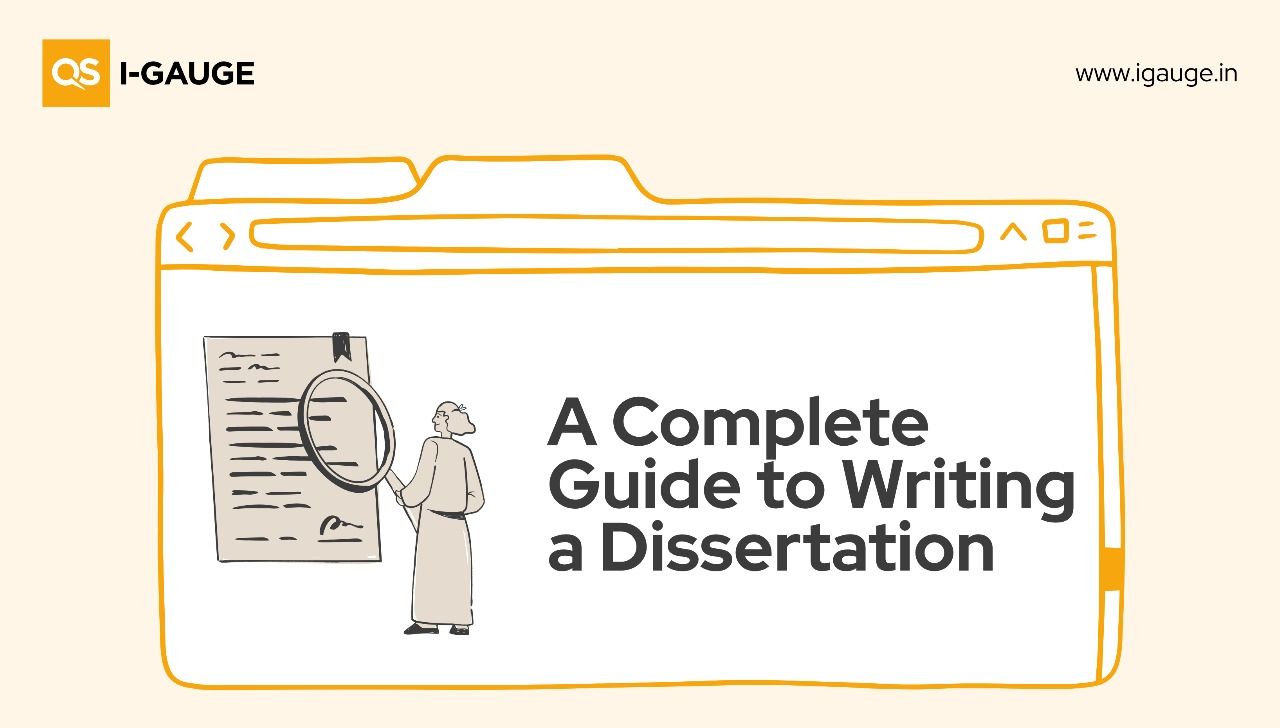
For many Indian students in higher education, the term dissertation becomes relevant during the final year of a master's or doctoral program. A dissertation represents more than a long academic paper because it proves students can perform independent research and present their findings in an organised manner while adding value to their chosen academic discipline.
A dissertation demonstrates a student’s understanding, analytical skills, and research capabilities. It requires extensive planning, systematic data collection, analysis, critical thinking, in-depth knowledge, problem-solving capabilities, and academic writing over several months to develop a comprehensive written document.
Understanding the Dissertation
A dissertation is typically an extended academic document based on original research. Its length ranges from 10,000 to 50,000 words, depending on the degree level. In India, dissertations are mandatory in postgraduate programs such as MBA, M.Tech, MA, MS, and PhD, as well as in certain professional degrees, including law and social work.
Why Dissertation Matters
A dissertation serves as more than a graduation necessity because it creates lasting effects on professional development. Indian employers and academic institutions seek candidates who have finished their dissertation work because it demonstrates these specific qualities:
- Research skill mastery - Vital if you aspire to work in academia, R&D, or policy-making.
- Subject expertise - Showcases your ability to handle niche topics with authority.
- Self-management - Since dissertation work demands discipline over several months.
- Analytical thinking - A valued trait in competitive job markets.
Students who want to study abroad or work internationally need to develop strong dissertation skills as these skills match the academic requirements of UK, USA, and Australian universities.
Importance of a Dissertation in Career Development
A well-executed dissertation can:
- Strengthen your resume with evidence of advanced research skills.
- Your extensive knowledge base will help you differentiate yourself from other candidates during all stages of job interviews.
- The research contains vital information that will help create academic journal articles.
Your academic and research career development will benefit from establishing credibility when you continue your education in research-based academic programs.
Types of Dissertations in the Indian Context
The Indian education system requires students to follow particular dissertation formats, which depend on their academic field of study.
- The research design of empirical dissertations requires data collection through surveys, interviews, experiments, and fieldwork research, which sociologists, psychologists, and engineers commonly use.
- Library-based dissertations - rely heavily on existing published research; common in humanities or theoretical sciences.
- The research focuses on practical dissertations that combine theoretical knowledge with real-world applications through case studies and practical project outputs in management and design fields.
The identification of your dissertation type at the beginning enables you to create an effective research methodology.
Structure of a Dissertation
Indian universities follow standardised document formats for academic materials that comply with international academic standards.
- The title page contains the dissertation title along with author information and institutional details, departmental affiliation, and submission date.
- Abstract - A summary (300–500 words) outlining objectives, methods, findings, and conclusions.
- Acknowledgements - Space to thank mentors, supervisors, peers, and family.
- Introduction - Introduces the topic, states research questions, and explains its significance.
- The Literature Review section reviews all previous studies that relate to your research subject.
- Methodology - Details the approach, tools, and procedures for data collection and analysis.
- The Results Section presents findings through a clear presentation of data, which includes appropriate use of tables, graphs, and charts.
- The Discussion Section of the paper connects research findings to previous studies while explaining both the results' significance and the study's limitations.
- The final section of the report presents essential Conclusions, Findings, and Recommendations for additional research topics.
- References - Lists all sources cited in proper academic format.
- Appendices - Includes supplementary materials like surveys, transcripts, or raw data.
Dissertation Process
- Proposal Submission - In most Indian universities, you start by submitting a dissertation proposal. Your supervisor or dissertation committee needs to approve your topic, objectives, and methodology in the document.
- Research and Data Collection - The research data comes from multiple sources, which include field studies, survey responses, interview recordings, official government documents, and scholarly academic papers. Research projects conducted in India base their studies on local case studies to make their research more relevant to their environment.
- Writing and Drafting - The process of writing a dissertation requires multiple stages because you create different versions that receive feedback until you achieve final content readiness. Academic institutions in India permit students to submit their dissertations in local languages, yet English remains the primary language for academic research.
- Reviewing, Proofreading, and Attention to detail are critical. The paper requires authors to use proper grammar and formatting as per the prescribed standards.
- Submission and Viva Voce - A viva voce is common, where you present your research and answer questions from examiners. The assessment tests your understanding of both the depth of your knowledge and your confidence in your finished work.
Tips for Success
- Select a research topic that is both important and feasible to study, since broad subjects should be avoided in favour of specific knowledge gaps that you can investigate during your available time.
- Begin your work early because you need to spend several months conducting research, analysis, and creating multiple versions of your paper.
- The research needs to obtain data from reliable sources, which include peer-reviewed journals, credible reports, and authentic databases.
- Stay in regular touch with your guide - Feedback at every stage ensures you are on track.
- Students need to understand plagiarism rules while ethically using paraphrasing tools.
- Establish a weekly word count goal instead of producing all content at once before the deadline.
- Students need to perform a complete review of their work to check for grammatical accuracy, proper formatting, and content understanding before the final grading process.
A dissertation is not only a test of intelligence, it’s a reflection of perseverance and maturity. Treating it as an opportunity rather than a task alters the approach and in turn the output.
In Conclusion
A dissertation serves as a differentiator in India's competitive academic and professional environment, as it helps you achieve research positions or doctoral studies and proves your academic excellence.
Disclaimer
The blog is curated by referring to various credible sources and does not necessarily reflect the opinions or positions of QS I-GAUGE. The information provided is for general informational purposes only, readers are advised to conduct their own research and seek professional advice before making any decisions.




